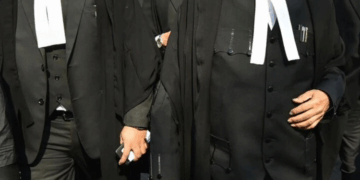Human history is the story of rise and fall of the civilisations. They are born, evolve, reach their climax and also bury under the sands of time. Many a civilisations, at least seven (The Clash of Civilisations & The Remaking of World Order) have vanished from the surface of the earth. But as per a set sociological phenomenon a creative minority in every age respond to the challenges of their collective being with certain ideas and endeavour to reconstruct them accordingly.
Muslim civilization which dominated the global socio, politic and economic arenas for almost a millennium starting experiencing its downward spiral almost 300 years ago. Many a men and movements rose during these three centuries to confront the challenges facing the complex Muslim society.
Sir Sayed Ahmad Khan, Dr Mohammad Iqbal, Abul A’ala Maududi, and a few others is the imagery in the pantheon of Muslim revivalism in the Indian subcontinent. The common thread that binds them all was the passion of reformation and reconstruction of their community fired by a sense of loss of glory. As a student of Islam and Muslim history, I perceive the three personalities had embarked their voyage from modesty via a process of learning to intellectualism and ended as entities of empathy.
Maududi influenced a class of educated Muslims, mostly in the subcontinent. He created a narrative which fascinated Muslim minds conscious of the global power play and subjugation and desperate situation of Muslims. His ideology appealed the modern Muslims as did Carl Marx across the religious aisle of the world. It was in 1940’s that the former mobilised Muslims on a new interpretation of Islam which was political by its core. It influenced certain cultured men from Kashmir. Sa’adudin Tarbali, Maulana Ghulam Ahmad Ahrar, Hakim Ghulam Nabi, Qari Saifuddin and Ghulam Rasool Abdullah thus founded Jamaat-e-Islami Jammu and Kashmir (JI).
It was a period when the leadership of the two dominant communities of India had failed to accommodate each other, precipitating dismemberment of the sub-continent. With the birth of two dominions was also born, Kashmir –a festering sore that is ceaselessly inflicting pain and suffering more on the people of Kashmir, than its two claimants. The region was raided by Tribals assisted by Pak regulars. It was at this moment that Maududi, the revivalist of the concept of Muslim Khilafat, issued a statement terming the raid on Kashmir as un- Islamic. He suffered a backlash from the establishment but did not rescind from his principled stand on war and peace in Islam.
Fast forward to 1989, militancy erupted in Kashmir and hundreds of militant outfits mostly with Arabic prefixe al emerged on the scene. JI Kashmir allowed itself to be swept away in the mayhem where every actor resorted to killings with glee. One wonders as to where from did JI, a religious politico ‘movement’ drew the authority to wage an “Islamic Jihad” in Kashmir. Proclaiming Jihad and using force in Islam is the prerogative of the emir of the Muslim State. Non state -actors, be it an individual or a group, as per Quran and Sunnah of the Prophet Mohammad, has no right to proclaim Jihad fil Qital. If they do, it according to Quran will in unequivocal terms invite divine punishment.
Violence and Force has been used through-out history to achieve political means. Guerilla warfare propounded by communist revolutionary Ernesto Che Guevara has been extensively employed in present age political conflicts. Indian independence movement too has its share of the usage of violence. Gandhi Ji, revered as a saint for his nonviolent resistance, in April 1918 met viceroy Lord Chelms and assured his support to England in its war against Germany. He attempted (with failure) to enlist Indian combatants for British Army in WW I. Mawlana Abul Kalam Azad in his India Wins Freedom reveals that at the news of the death of Subhash Chandra Bose, Gandhi wrote to his mother. The letter glorified her son’s “acts of violence” as bravery. Azad, the then Congress president continues that he had to face embarrassment before the viceroy for Gandhi’s adoration of Bose despite, he, professing non-violence as his creed.
I hold brief for none of the actors in Kashmir conflict. I have no mandate to frame their strategies as sick or healthy. My point is that JI Kashmir submerged itself in the Cha Guevara wave and simultaneously permitted it to be branded as Islamic Jihad. It strayed from the principled stand of Islam on use of Force and strayed from their ideologue, Maulana Maududi on the use of force by proxy or private militias.
But ultimately politics is a game never played in black and white. It has many shades in between. Gandhi ji too had his portion of aberrations in his political life. He was undoubtedly a noble soul that had journeyed to evolve an icon of empathy. Although he appreciated caste system in Hindu way of life but he was not a Hindu supremacist. He was surely not the lynch man of our times.
Iqbal or Maududi too were not sadistic killers perpetrating dehshat and vehshat with glee under a green cloak. They were sophisticated men with a lump of flesh in their chests that wreathed in pain for their dispossessed people. They had their global perspective. We respect them all but not as stultified minds to uncritically identify with their every idea and concept.
Cut to the current assembly elections in Jammu and Kashmir, allowing JI circuitously a democratic space reflects sagacity of the PM Modi led government and pragmatism of JI. It shows the beauty of Indian democratic polity despite its imperfections. Let us hope and pray the actions are beyond the dark thicket of political opportunism in an era where ‘minds are gripped by an Orwelian fear’.





